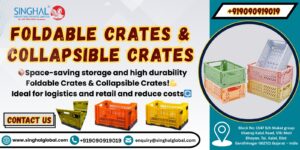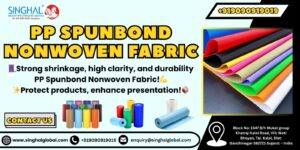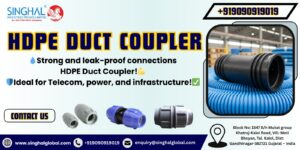Polypropylene thread also known as PP or Polypropylene yarn is known as the lightest and most functional yarn in the textile enterprises. The hygienic arrangement of polypropylene yarn is not complex to react with. Therefore, the inhalation structure tosses Dampness produced by sweat and other related reasons, does not maintain water and Moisture, and comprises no smut or stain.
In terms of adaptation to nature and reusability, it’s also in more promising situations than many other types of yarn variations. It is a type of yarn, which may at the suitable proportions also attain great power. The applications produced during construction also contain properties such as increased sturdiness and cantankerousness.
It is not only used by thin fabric enterprises as the best-loved yarn type because of its technical features but also operates in different industries and sectors, including household textiles, sockets, and tapestries.
Polypropylene yarn is a versatile and broadly utilized fabric with a span of applications across various industries. In this article, we will explore the key features of polypropylene yarn, shedding light on its properties and advantages. Whether you are a manufacturer, designer, or simply inquiring about this extraordinary material, read on to learn why pp fibrillated stitching yarn manufacturers are getting recognition for their excellent abilities.
High Strength and Strength
One of the distinct features of polypropylene yarn is its remarkable power and toughness. This synthetic polymer is known for its strength, making it a perfect option for applications that need flexibility and long-lasting performance. Whether utilized in the fabric industry, industrial packaging, or other fields, polypropylene yarn can resist wear and tear, assuring the longevity of the items it contributes to.
Lightweight Nature
PP fibrillated yarn manufacturers is unusually lightweight, making it an outstanding choice for industries where weight is a vital factor. Its low density not only contributes to the comfort of supervision but also decreases transportation expenses. This feature is mainly beneficial in applications such as packaging, where lightweight materials can help enhance logistics and decrease environmental effects.
Moisture Confrontation
Polypropylene yarn is innately moisture-resistant, which is a valued characteristic in numerous settings. Whether it’s utilized in outdoor textiles or as part of protecting packaging, this material can efficiently repel dampness, averting damage caused by water or humidity. This confrontation with dampness makes polypropylene yarn a dependable option for items that require undergoing numerous environmental situations.
Chemical Resistance
In manufacturing and chem, environmental confrontation with possibly eroding materials is vital. Polypropylene yarn outshines in this respect, as it is extremely resistant to many chemicals. This feature opens up a wide range of potentials for applications in chemical enterprises, where materials must keep their reliability when coming in contact with different kinds of chemicals and solvents.
Temperature Forbearance
Polypropylene yarn can easily resist a wide range of temperatures, making it appropriate to utilize in both hot and cold climates. Whether it’s for geotextiles in structure assignments or as a component in automotive applications, this material’s capability to perform consistently across temperature variations is a crucial benefit.
Low Environmental Impact
As sustainability becomes a vital matter of concern in manufacturing and product development, PP yarn stands out for its eco-friendly abilities. Biodegradable options of polypropylene yarn are available, donating to decreased environmental effects. This makes it an attractive choice for those seeking fabrics that align with environmentally mindful practices.
Usage in Versatile Applications
The adaptability of polypropylene yarn is indeed remarkable. It finds applications in a broad range of enterprises, including:
Textiles: In fabric enterprises, polypropylene yarn is utilized to manufacture fabrics for different kinds of objectives, from clothing and stuffing to geotextiles and carpeting.
Packaging: It is very light in weight and its strong nature makes it a perfect selection for packaging goods, including sacks, bags, and woven polypropylene bags.
Agriculture: Polypropylene thread is utilized in farming settings, especially in the form of weed control mats. These mats help evade weed development in gardens and farming fields, improving harvest yields.
Automotive: It’s used in automotive centers and components due to its confrontation with temperature differences and strength.
Construction: PP fibrillated yarn holds a major part in construction Industries as geotextile, offering stability and reinforcement in mud and infrastructure tasks.
Medical: In the medical sector, it is utilized in different applications, which include surgical sutures and wound closure instruments.
Advantages of PP Yarn
Adaptability according to situations, low thickness, low thermal conductivity, low moisture absorption, food-based compatibility, lowest static electricity, high chemical resistance, etc.
No World Dampness
PP is a hydrophobic polymer that resists water. Therefore, differences in relative moisture do not affect their mechanical features.
Do not Give Up the Color
After production, PP does not keep painting. During the manufacturing process, the thread is painted in the needed color, and each order is fetched in the same pigment. Therefore, there is no exertion with color variances.
Stain and Filth
Because of its molecular layout, PP is not matched for dirt and stains. The sweaty provision helps the body to dry through the fabric.
Allergy-free
There is no smut, stains, or coloring, and antibacterial features since the bacterial qualities in the body are not there. Anti-allergic, extra-antibacterial materials may also be established.
Mechanical properties
To meet varied market requirements, polypropylene fibers are manufactured in a span of kinds with different tenacities. Fibers have a tenacity of 4.5-6.0 g/d for characteristic textile applications. However, for use in ropes, nets, and other related items, high-tenacity yarns up to 9.0 g/den are produced. With high power and high modulus, high-performance PP fibers were manufactured.
Thermal properties
The lowest thermal conductivity of any natural or manmade material is polypropylene fiber (6.0 matched to 7.3 for wool, 11.2 for viscose, and 17.5 for cotton). PP fibers hold more heat for a longer period, offer excessive insulating abilities in apparel, and uphold dry and warm wearers in combination with their hydrophobic behavior.
Polypropylene threads are around 150°C softened and about 160-170°C melting point. A PP fiber retains good elasticity at low temperatures of -70°C or below. PP fibers preserve almost all of their customary mechanical characteristics at increased temperatures (but below 120°C).
Dyeability
Both its chemical and physical features affect the dyeability of yarns. Fibers with polar functional categories can be more willingly colored in their molecular repeat components. These polar groups can work as active sites for chemical bond mixtures with dye particles.
As polypropylene molecular chains have no glacial practical groups and no relatively high crystenicity (50-65 percent) (active sites for chemical bonding or dye sites), chemical dye molecules can’t appeal to the character Furthermore, because of their hydrophobic features, the coloring molecules cannot be inflexibly fascinated by the fiber.
Wrap up
Polypropylene is a synthetic fiber that is manufactured from 85% propylene and is utilized in many sectors. Poly-sectional fiber is also understood as polypropylene or PP. It is functional in many varied sectors, but the manufacturing of tapestry thread is one of the most popular ones. Most reasonable light residential carpets are, for instance, developed from this fabric. The fiber is thermoplastic, resistant, and mildew-resistant, as well as several chemical substances.
Singhal Industries is a leading pp fibrillated yarn manufacturer in India. At Singhal Industries we always want to provide high-quality products to our customers.









